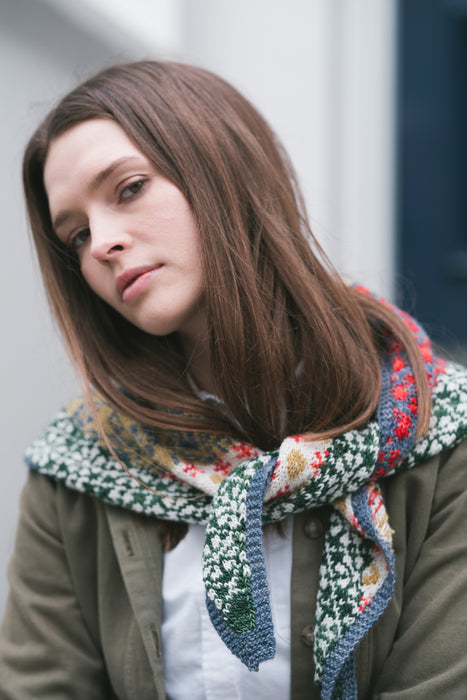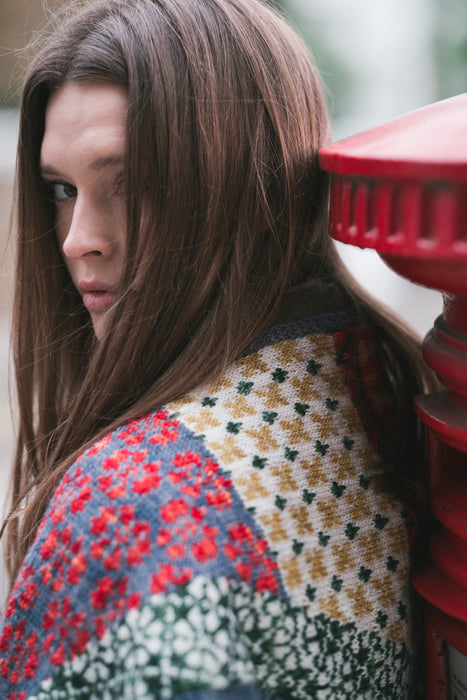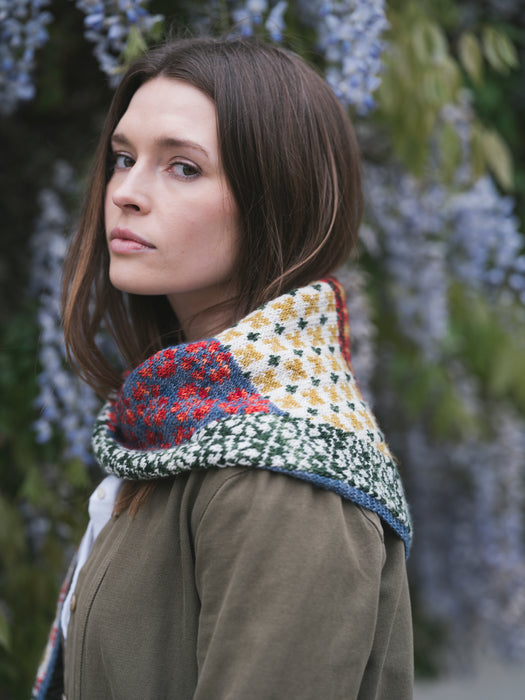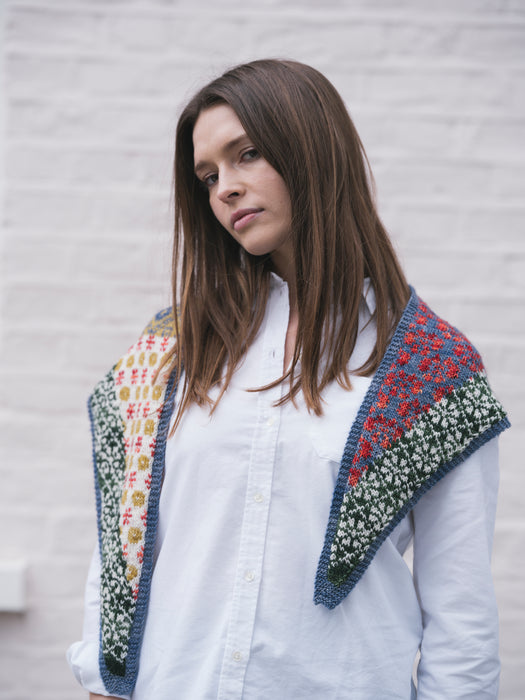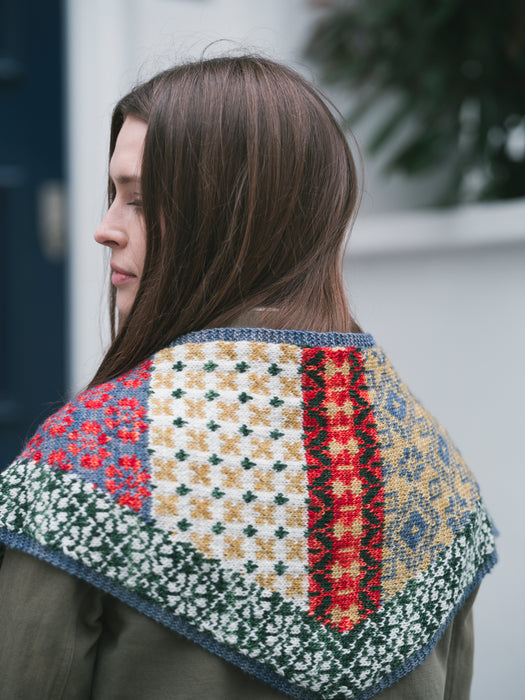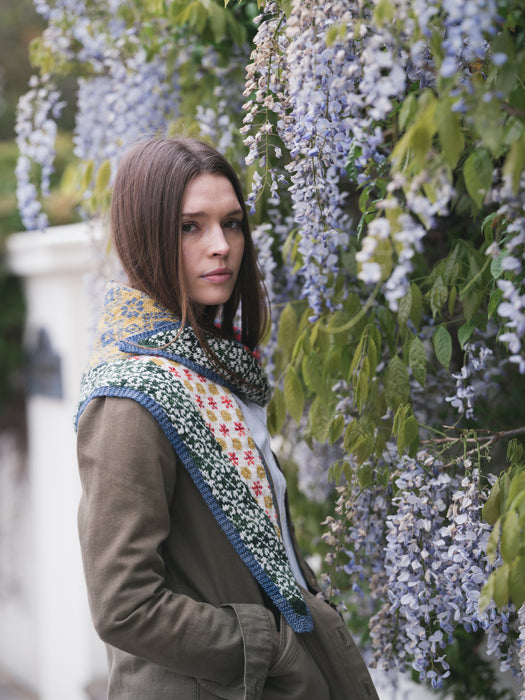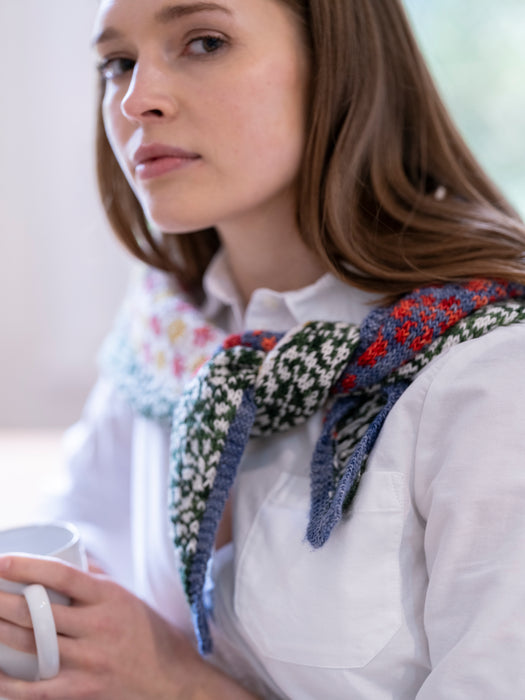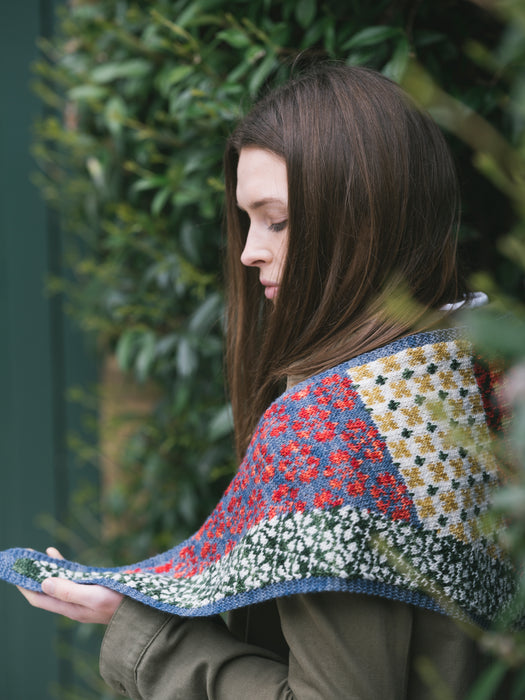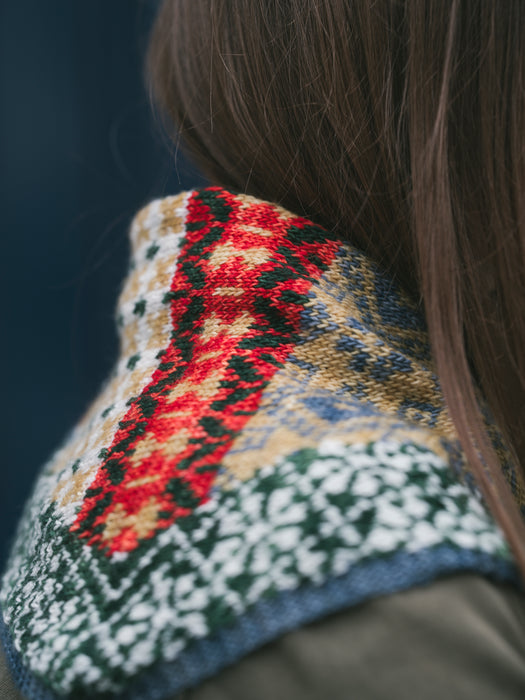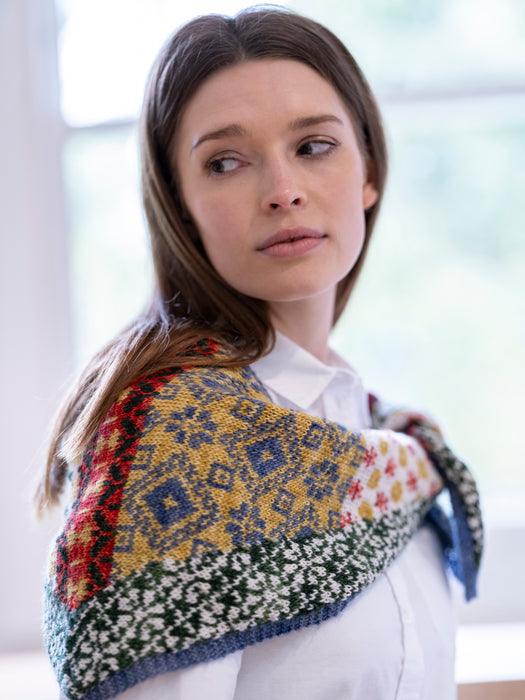Folky Scout Mini Shawl
A mini shawl within my ‘Scout’ series – a dream project for colourwork lovers, Scout’s patchwork effect is achieved by mixing stranded colourwork and intarsia knitting throughout. For this version, I drew upon the colours and motifs within traditional folk textiles, interpreting this feel into Scout’s signature look of intricately mixed-patterns inspired by the pieced-together aesthetic of vintage quilts. Knitted sideways from tip-to-tip, this petite triangular shawl can be styled in numerous ways.
Colourwork is charted only.
Yarn
Madelinetosh Tosh Merino Light
100% Superwash Merino wool
Fingering Weight
384m / 420yds per 100g / 3.5oz skein
Sample used:
C1 – 120m / 130yds of “Favorite Pair” (blue)
C2 – 105m / 115yds of “Moorland” (green)
C3 – 135m / 150yds of “Antler” (white)
C4 – 55m / 60yds of “Carolina Reaper”(red)
C5 – 70m / 75yds of “Winter Wheat” (gold)
Please note there is a 15% buffer added to these yarn amounts.
Advice on choosing colours:
• The most important thing is to choose five colours that you love together!
• I like to include a neutral as one of the colours, as it makes the other colours sing.
• Don’t worry or try to control the colour pairings too much - the concept of the patchwork aesthetic is that some pattern blocks will be high contrast, and some will be low contrast. The beauty of this is that you can let the colours unfold in an unexpected way.
Use the schematic to further check how the colours will be paired together.
Tools & Materials
• 3.5mm / US 4, 61cm / 24” or 81cm / 32” circular needle
• Tapestry needle for weaving in ends
Gauge
28 sts and 30 rows = 10cm / 4” in stranded
pattern after blocking.
I suggest using Chart 4 and working between columns 1-40, ROWS 1-20 (repeated twice) to knit a swatch that will measure approx.
13-14cm / 5-6” square to determine your gauge.
Always use a needle size that achieves the
correct gauge.
Construction Notes
Shawl is worked side-to-side, starting at one tip, and increasing out to the widest point, then decreasing back to the other tip.
Shaping on the triangular tips takes place over a mix of 2 and 4 rows, along the left edge only.

